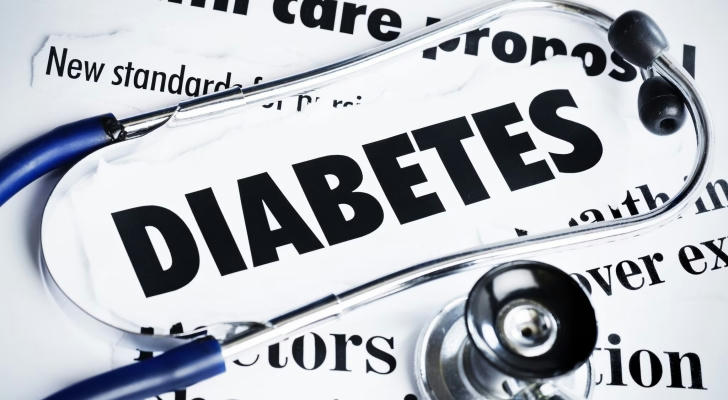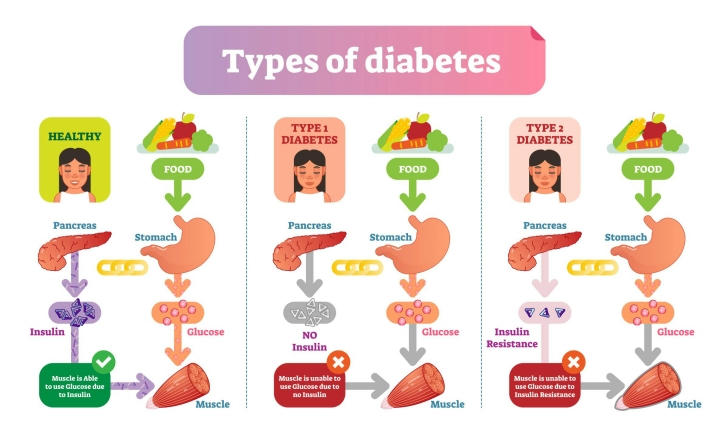Early Signs of Diabetes You Shouldn’t Ignore
Diabetes is a chronic condition that often develops gradually, with early symptoms that can be easy to overlook. If left untreated, it can lead to serious complications like heart disease, kidney failure, and blindness. Recognizing the early warning signs and seeking medical attention promptly is key to managing diabetes effectively and preventing long-term health issues.
Common Early Symptoms of Diabetes
The early signs of diabetes can be subtle, but it's important to be aware of them, especially if they persist over time. If you experience any of the following symptoms, it may be time to consult a healthcare provider for further testing:

Frequent Thirst and Urination
Excessive thirst (polydipsia) and frequent urination (polyuria) are common early signs of diabetes. High blood sugar levels cause the kidneys to work harder to remove excess sugar from the blood, leading to increased urination. As a result, you may feel constantly thirsty.
Fatigue and Weakness
People with diabetes often experience persistent fatigue. This is because the body cannot use glucose (the main energy source) properly without enough insulin. As a result, energy levels drop, leaving you feeling tired even after adequate rest.
Blurred Vision
High blood sugar levels can cause fluid imbalances in the eyes, leading to blurry vision. This condition, known as diabetic retinopathy, can worsen if blood sugar levels remain uncontrolled.
Slow Healing of Wounds
Diabetes can impair the body’s ability to heal wounds properly. If you notice cuts, bruises, or scrapes taking longer than usual to heal, it could be an early warning sign.
Unexplained Weight Loss or Gain
While many associate diabetes with weight loss, some people may experience weight gain, especially those with Type 2 diabetes. Insulin resistance can lead to increased fat storage. Conversely, Type 1 diabetes often causes weight loss as the body starts breaking down muscle and fat for energy.
Risk Factors for Diabetes
Not everyone is at the same risk for developing diabetes, but certain factors can increase the likelihood. If you fall into any of these categories, your risk may be higher:

Family History: If close relatives have diabetes, you’re more likely to develop it as well.
Age: Those over 45 years old are at greater risk, especially for Type 2 diabetes.
Obesity: Being overweight, particularly with excess abdominal fat, is a major risk factor.
Sedentary Lifestyle: Lack of physical activity can contribute to weight gain and insulin resistance.
High Blood Pressure and High Cholesterol: These conditions are linked to an increased risk of diabetes.
Real-Life Example: Sarah’s Story

Sarah, a 40-year-old marketing manager, began noticing she was feeling more tired than usual, despite getting plenty of sleep. She was also drinking a lot of water and running to the bathroom frequently. Her vision seemed blurry, especially in the evening, but she didn’t think much of it. However, when she started losing weight without trying, she became concerned.
After describing her symptoms to her doctor, Sarah was advised to have her blood sugar checked. The results revealed that her blood sugar levels were high, indicating early-stage Type 2 diabetes. With a family history of diabetes—her father had Type 2—Sarah’s doctor explained that she was at higher risk.
Fortunately, Sarah’s early diagnosis allowed her to make lifestyle changes. She adjusted her diet, started exercising more, and began monitoring her blood sugar levels. Her doctor also prescribed medication to help regulate her blood sugar. Over time, Sarah’s condition improved, and she regained control over her health. Had she ignored the symptoms, her diabetes could have progressed to more serious complications.
Why Early Intervention Matters
Early detection of diabetes is critical for managing the disease and preventing long-term complications. The sooner you notice symptoms and seek medical help, the easier it is to control blood sugar levels through diet, exercise, and medication. If untreated, diabetes can lead to damage to vital organs such as the heart, kidneys, and eyes.
Conclusion
Diabetes is a serious condition, but with early diagnosis and proper management, you can live a healthy life. If you notice any of the symptoms mentioned above, or if you fall into a high-risk group, it’s important to consult a healthcare provider for testing. The earlier you address the issue, the better your chances of preventing complications and maintaining good health. Don’t wait—take control of your health today.
